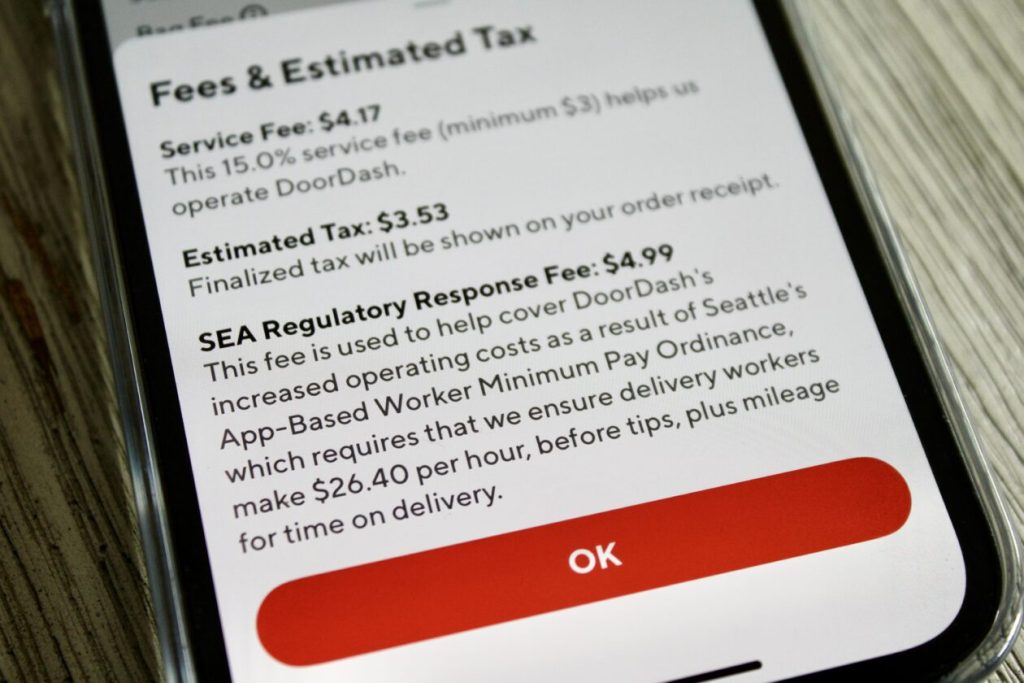A complaint has been filed with the Federal Trade Commission regarding fees added by Uber and DoorDash to customer orders in Seattle following the implementation of a minimum wage law earlier this year. The complaint alleges that the fees are deceptive and misleading, with the companies misrepresenting the total cost of delivery. The minimum wage law in Seattle went into effect in January, prompting Uber and DoorDash to add a $5 fee to each consumer order, leading to a decline in demand. The companies are lobbying customers and lawmakers in an attempt to change the law.
The complaint claims that the $5 fee set by Uber and DoorDash are “junk fees” and that they do not have a reasonable relationship to the companies’ costs. It suggests that the companies are manipulating the marketplace by rapidly increasing costs for every delivery in a manner that misleads consumers about the total cost of deliveries. The companies defend the fees as necessary to offset the increased costs of regulations imposed on third-party delivery apps as a result of the minimum wage law in Seattle.
Seattle resident Robert White, who filed the complaint, believes that the fees are deceptive and not tied to the service being provided. He hopes that the FTC intervenes and declares the practice illegal. The complaint also raises concerns about the extraordinary control that companies like Uber and DoorDash have over prices and wages, utilizing algorithms without proper labor rights. The companies have responded to the complaint, with DoorDash calling it completely absurd and meritless while Uber blames the fee directly on the law passed by the Seattle City Council.
Seattle’s minimum wage law for independent contractors who deliver food has sparked debate and lobbying efforts from companies like Uber and DoorDash. The impact on driver pay is mixed, with some drivers benefiting and others experiencing reduced demand and income. The companies have raised concerns about the unintended consequences of the law, while Working Washington, a nonprofit that helped pass the legislation, highlights the potential impact on net pay for drivers. The minimum wage legislation in Seattle is just one of several unique “PayUp” laws recently approved, with the city becoming a testing ground for labor standards in the food delivery market facilitated by tech companies.


